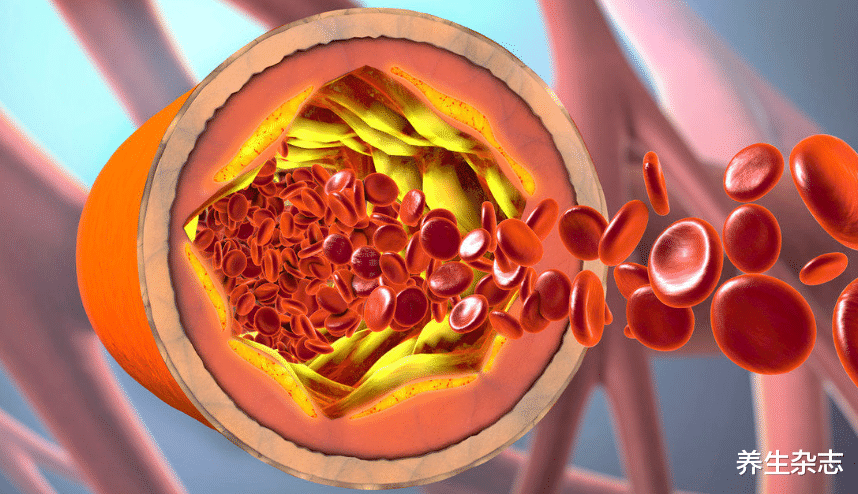Introduction: In recent years, due to the improvement in living standards, people have progressed from the era of not having enough to eat and wear to the current era of not worrying about food and drink. Many people no longer tire themselves out running around for food and drink. However, this peaceful and pleasant life is often “disturbed” by various chronic diseases, with high blood lipids being the most common, causing fear.
Case: Mrs. Li, 50 years old from Qingdao, Shandong Province, her husband works away from home, and their children are studying abroad, leaving her alone at home. Mrs. Li’s daily life is not boring. She passes the time watching short videos, learning to cook some delicious dishes, and although she lives alone, she leads a comfortable life.
She enjoys her daily food and drink, but at the beginning of the year, she often experienced headaches and dizziness. So, she quickly went to the hospital for a check-up, and the results showed that her triglyceride levels were high, leading to a diagnosis of hyperlipidemia. After the doctor’s understanding and analysis, she learned that her high blood lipids were closely related to her usual diet.
Doctor’s advice: These 3 types of food easily elevate blood lipid levels, so it’s best to avoid them.
1. Egg Yolk Pastry
Egg yolk pastry is one of Mrs. Li’s favorite foods, crispy, sweet, and irresistible. However, consuming such foods regularly undoubtedly clogs the blood vessels because they are high in fats, cholesterol, and sugar. Regular consumption can strain the body’s metabolic capacity, leading to increased blood lipids and circulation burden, ultimately triggering hyperlipidemia.
2. Fried Potatoes
Mrs. Li stumbled upon fried potatoes while watching videos. Sprinkled with spices, fried potatoes are simply delicious. Therefore, she often makes and eats them.
However, fried potatoes have excessively high carbohydrate and fat content. Regular consumption can increase triglyceride levels in the blood, affecting blood viscosity and circulation. Over time, blood lipid levels will gradually rise.
3. Braised Pig Intestines
Braised pig intestines are Mrs. Li’s specialty dish, and she often enjoys it. However, pig intestines are animal offal with high cholesterol and fat content. Consuming them burdens the body’s metabolism, leading to the accumulation of undigested fats in the blood vessels, which can affect blood lipid levels.
“Lipid-lowering expert” discovered that one bite is equivalent to 5 pounds of onions. Openly enjoying it keeps the blood lipids in check.
After nearly a year of lipid-lowering efforts, Mrs. Li has managed to control her blood lipids quite well. She returns from hospital check-ups with joy every time. Initially, she heard that onions could lower blood lipids, so she ate them daily.
However, the results of the follow-up checks were not as expected. The doctor told her that while onions contain certain nutrients that can soften blood vessels and reduce blood lipids, the effect is minimal. Therefore, it is advisable to focus on dietary changes for proper management.
Additionally, when adjusting the diet, remember to supplement the body with nutrients, such as [Duplex Lipid-Lowering Nutrients]. It is a compound lipid-lowering nutrient that can be added to the diet, providing good effects on regulating blood lipids and protecting blood vessels. The nutritional components of Duplex Lipid-Lowering Nutrients come from over ten traditional Chinese medicinal ingredients such as Tianbei Powder, Cordyceps, Cinnamon, Cassia Seed, and Pueraria, scientifically extracting the lipid-lowering nutrients from these medicinal herbs. They are then formulated in optimal proportions to meet the body’s various needs.
Clinical studies have confirmed:
Tianbei Powder contains Tianbei kinase, which enhances blood vessel flexibility, improves vascular health, restores vessel elasticity and resilience; peptides soften blood vessels, helping to rapidly consume and metabolize lipid substances in the blood;
Cordyceps can reduce blood circulation resistance and pressure, promoting smoother blood circulation; Pueraria can lower triglyceride and cholesterol levels in the blood, ensuring clear blood quality, and demonstrating good lipid-lowering effects.
For those with high blood lipids, consuming 2 capsules of [Duplex Lipid-Lowering Nutrients] after meals can keep blood vessels clear and prevent hyperlipidemia.
Furthermore, maintaining an appropriate level of physical activity daily can help lower blood lipids. Exercise improves cardiopulmonary metabolism, enabling excess fat to be excreted through respiration, increasing oxygen content in the blood, and maintaining vascular activity. It is recommended to focus mainly on aerobic exercises such as running, Tai Chi, hiking, etc.
Conclusion: I hope that you, the reader of this article, have healthy dietary and lifestyle habits to help lower blood lipids, enabling your body to become increasingly healthy.


